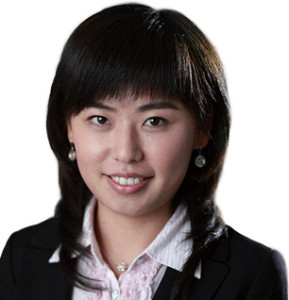The Israeli High Court of Justice, on 15 August 2017, rendered a ruling to recognize and enforce a judgment rendered by the Intermediate People’s Court of Nantong, Jiangsu province on 4 December 2009. With this, the dust finally settled on a dispute that lasted close to 10 years, ending with the plaintiff prevailing and the effective judgment being recognized and enforced by a foreign court. The essential issue here is, in the absence of an agreement for the mutual recognition and enforcement of judgments between China and Israel, the Israeli court, based on the “principle of reciprocity”, actively moved to recognize and enforce a judgment rendered by a Chinese court against an Israeli citizen in a contractual dispute.

SALLY WANG
胡光律师事务所合伙人
Partner
Martin Hu & Partners
Overview of the case. A Chinese citizen surnamed Chu (the plaintiff) instituted a legal action against an Israeli citizen, Itshak Reitmann, (the defendant), claiming that the defendant failed to perform his obligations as agreed, and demanding that he return the corresponding commission and the workers’ wages that were advanced. Jiangsu Overseas Group participated in the suit as a third party. Through the trial, the Nantong court found that: (1) the service co-operation contract between the defendant and the third party was lawful and valid; (2) as the service co-operation contract was unrealizable, the parties had terminated it early; and (3) on this basis, the defendant was required to refund the entirety of the commission paid to him by the third party.
None of the parties filed an appeal after the rendering of the judgment. As the defendant had no property in China available for enforcement, the third party, after the judgment became effective, applied to the Tel Aviv District Court for recognition and enforcement of the judgment. Following the trial, the Tel Aviv District Court held that the principle of reciprocity under Israeli law was applicable to the case and, accordingly, ruled to recognize and enforce the judgment rendered by the Nantong court. Dissatisfied with the ruling, the defendant appealed to the Supreme Court of Israel. Following a trial lasting more than one year, the Supreme Court of Israel upheld the judgment of the Tel Aviv District Court.
You must be a
subscribersubscribersubscribersubscriber
to read this content, please
subscribesubscribesubscribesubscribe
today.
For group subscribers, please click here to access.
Interested in group subscription? Please contact us.
你需要登录去解锁本文内容。欢迎注册账号。如果想阅读月刊所有文章,欢迎成为我们的订阅会员成为我们的订阅会员。
Sally Wang is a partner at Martin Hu & Partners in Shanghai
上海市芳甸路1155号浦东嘉里城办公楼8楼
邮编: 201204
8/F, Kerry Parkside Office, 1155 Fangdian Road
Pudong New Area, Shanghai 201204, China
电话 Tel: +86 21 5010 1666
传真 Fax: +86 21 5010 1222
电子信箱 E-mail:
sally.wang@mhplawyer.com





























